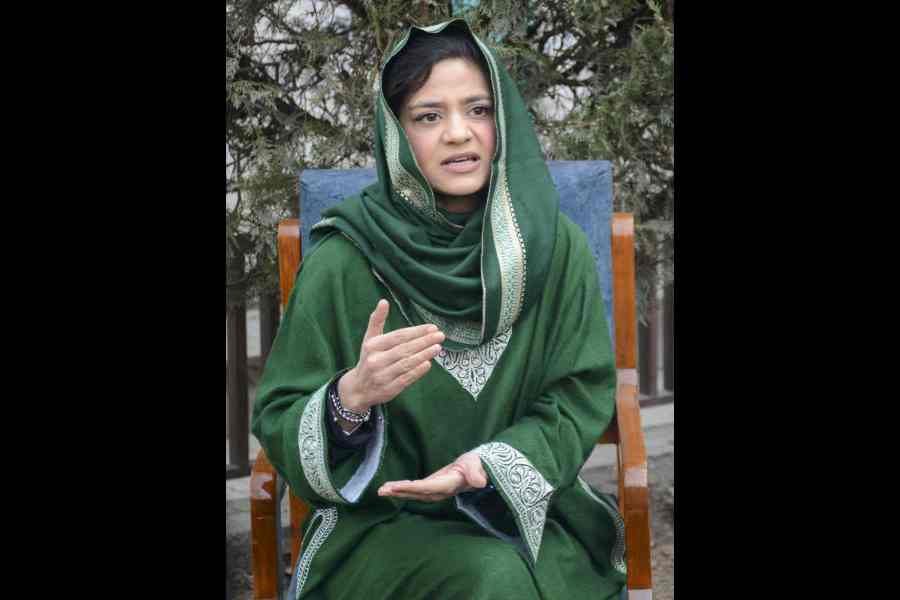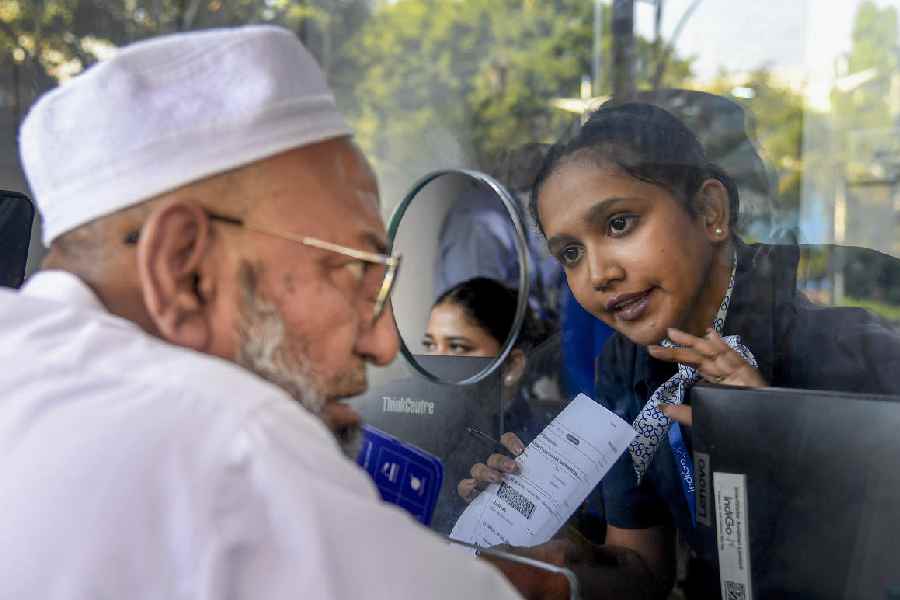Book: MUDRITHA
Author: Jissa Jose
Published by: HarperPerennial
Price: Rs 599
There is a tendency to use certain words interchangeably which we assume convey the same meaning. Jissa Jose’s debut novel, Mudritha, translated from the original Malayalam by Jayasree Kalathil, explores this ambiguity through an investigation of a missing woman who might have actually disappeared of her own free will. The novel and the eponymous ‘missing protagonist’ exemplify a search for possibilities, choices, and the small acts of rebellion that women are denied in a patriarchal society.
Mudritha, the woman the readers never get to meet, reveals herself through recounted episodes, telephonic conversations, and email exchanges shared with Aniruddhan, a 30-year-old man who files a missing complaint at a police station in Kerala. The catch is he, too, has never met Mudritha. So why the fuss over a stranger and her absence?
Aniruddhan’s entry sets off an inquiry. This man, on the brink of personal and professional breakdown, once co-owned a travel company, Himadri Tours and Travels, with friends which never really flourished. When the friends disbanded and went their separate ways after finishing college, the company was declared a casualty of a world that has little patience for failing enterprises. Aniruddhan almost resigns himself to a fate in which he is, not organising dream trips but, languishing as a teacher in a coaching centre when he receives a call from Mudritha. Her request is not simple. She wants Aniruddhan, rather ‘Himadri’, to organise a trip with nine other women to Odisha. Odisha — the home to Chandrabhaga, the river that took her own life to escape her abuser, the Sun — is more than a backdrop. It is an ethereal realm, a reminder of how, historically, women have been conditioned to submit, dissolve, whether into duty, expectation, or sorrow.
This ‘all-women’ travel request arrives like a flicker of hope and Aniruddhan decides to give one last chance to ‘Himadri’ before permanently shifting to the universe of mundane careers. However, as the story unfolds, it becomes clear that this journey is not merely about reviving a failing business — it exposes Aniruddhan’s entangled personal life. Surrounded by women in his family, Aniruddhan is both a witness to and a product of their lives and choices. His mother — oblivious to her late husband’s affair, something that surfaces after a fire accident — begins to put on a performance in which she is determined to celebrate the exuberance of life. His sister, on the contrary, surrenders to a space which is opposite of everything resembling life. The stark contrast between these two women, one feigning joy and the other rejecting it completely, shapes Aniruddhan’s understanding of absence.
Vanitha, the policewoman, who initially dismisses the ‘missing case’ to be of little worth, gradually finds herself invested in uncovering Mudritha’s story. As Vanitha navigates the psyches of the women who were to go on this dream trip to Odisha by diligently going through emails from each of them, she begins to discover the imprint Mudritha left on them. Sarvaranjini, Sancharini, Deeptha, Umanarayani, Baby, Vennila, Hannah, Shashwathi, Marianalini, and Madhumalathi were handpicked by Mudritha from a Facebook group called Lesbos. In fact, it was Mudritha who had meticulously planned each and every detail of the trip. The void created by her absence, a day before the scheduled trip, is discomforting to the other women who had expected to meet Mudritha for the first time. Their stories, anxieties, whispers coalesce into an aching truth about womanhood: the inescapable weight of being seen yet remaining unheard, present yet invisible.
Is Mudritha missing, or has she deliberately erased herself from the reach of humanity? Is Mudritha about one woman’s vanishing act or a radical reclamation of the Self in history, official narratives, and spaces from where women have either receded or have been made to go invisible? This is the question Jose poses to her readers as she coaxes them to find out the reasons for the acts of ‘disappearance’ by women.
Jose’s novel could have parallels in Mrinal Sen’s Ek Din Achanak where the patriarch of the household, a middle-aged professor, goes missing one rainy evening. In Mudritha, however, the missing person is a woman, and the response to her disappearance is markedly different. Unlike the existential void that the professor’s absence creates in Sen’s film, Mudritha’s vanishing act challenges societal expectations tied to a woman’s presence. The world is quick to mourn a missing man but does it afford a woman the same agency to leave without explanation?
Mudritha cannot be reduced to a tragic figure. She is not a triumphant one either. She remains elusive, much like the river she wished to meet from up close. In an age where women’s disappearances are invariably reduced to crime statistics or media spectacle, Mudritha offers an alternative gaze: one that investigates the complexity of leaving or perhaps the simplicity of existing in chaos.
Jose leaves us with no easy answers, only a lingering unease. The conclusion, or the resolution to the ‘mystery’, might disappoint some readers: it did not agree with this reviewer. But as days went by, the ending started making sense. The magic of Jose is such that the story will stay with you, make you a bit unsettled given your own demands from a work of fiction. While you are on that journey to come to terms with your response, reconciliation would strike, bringing calm in its wake.










